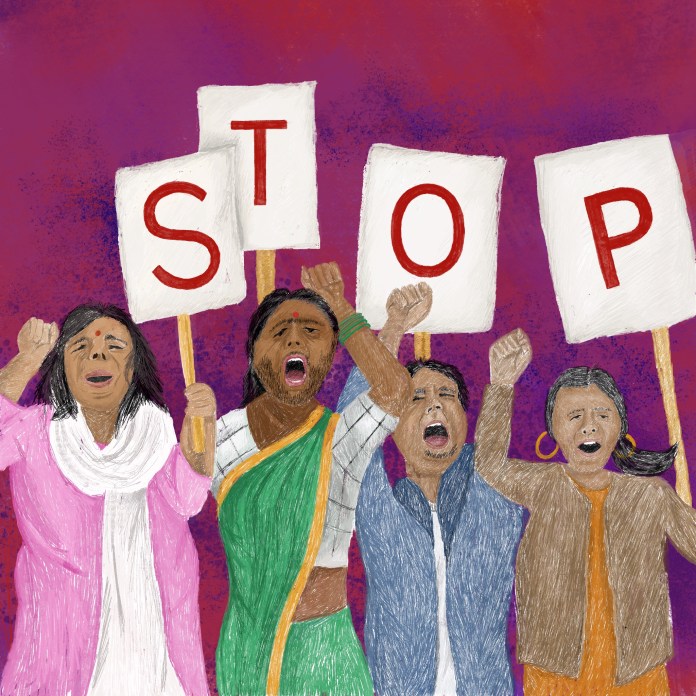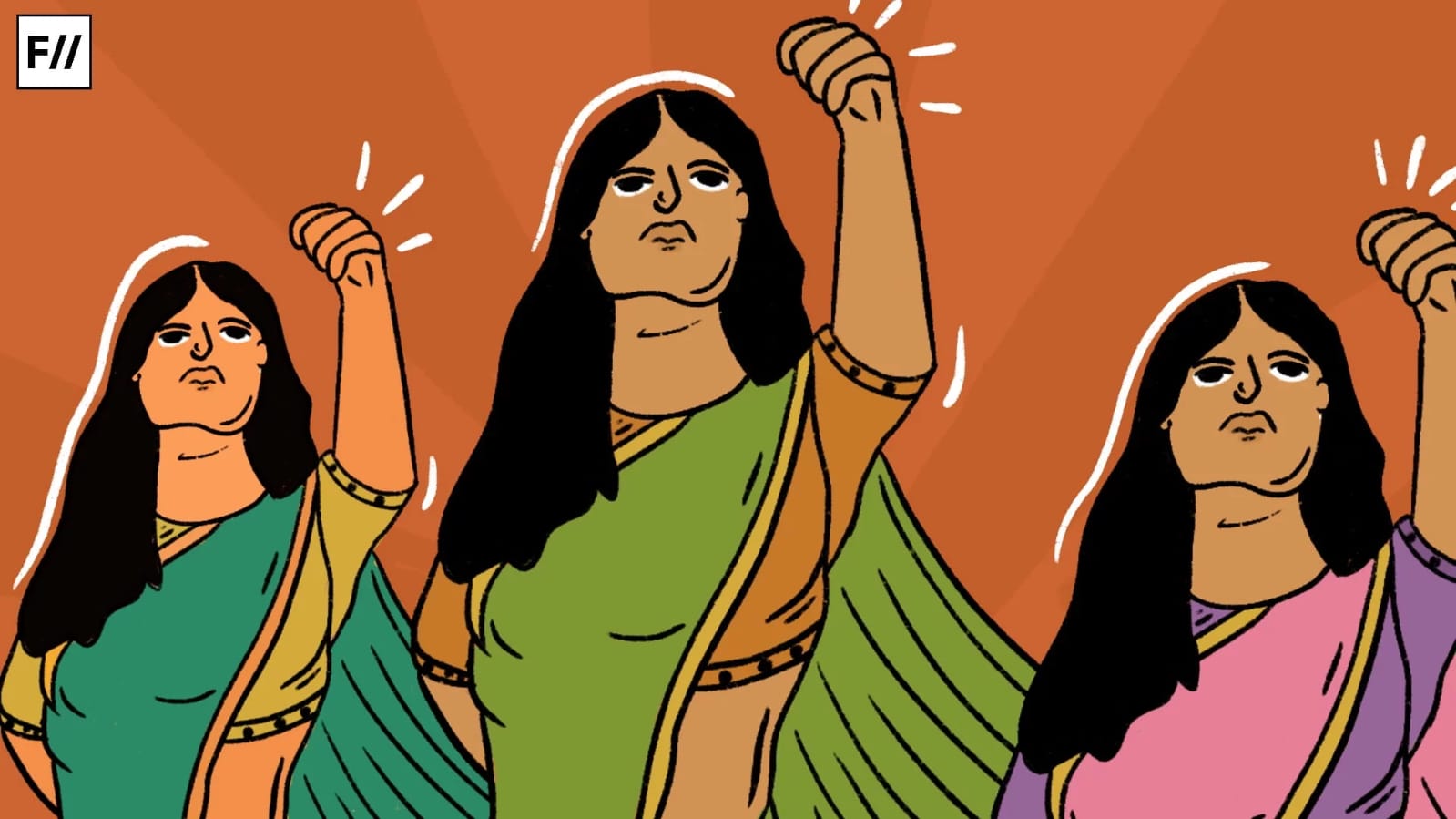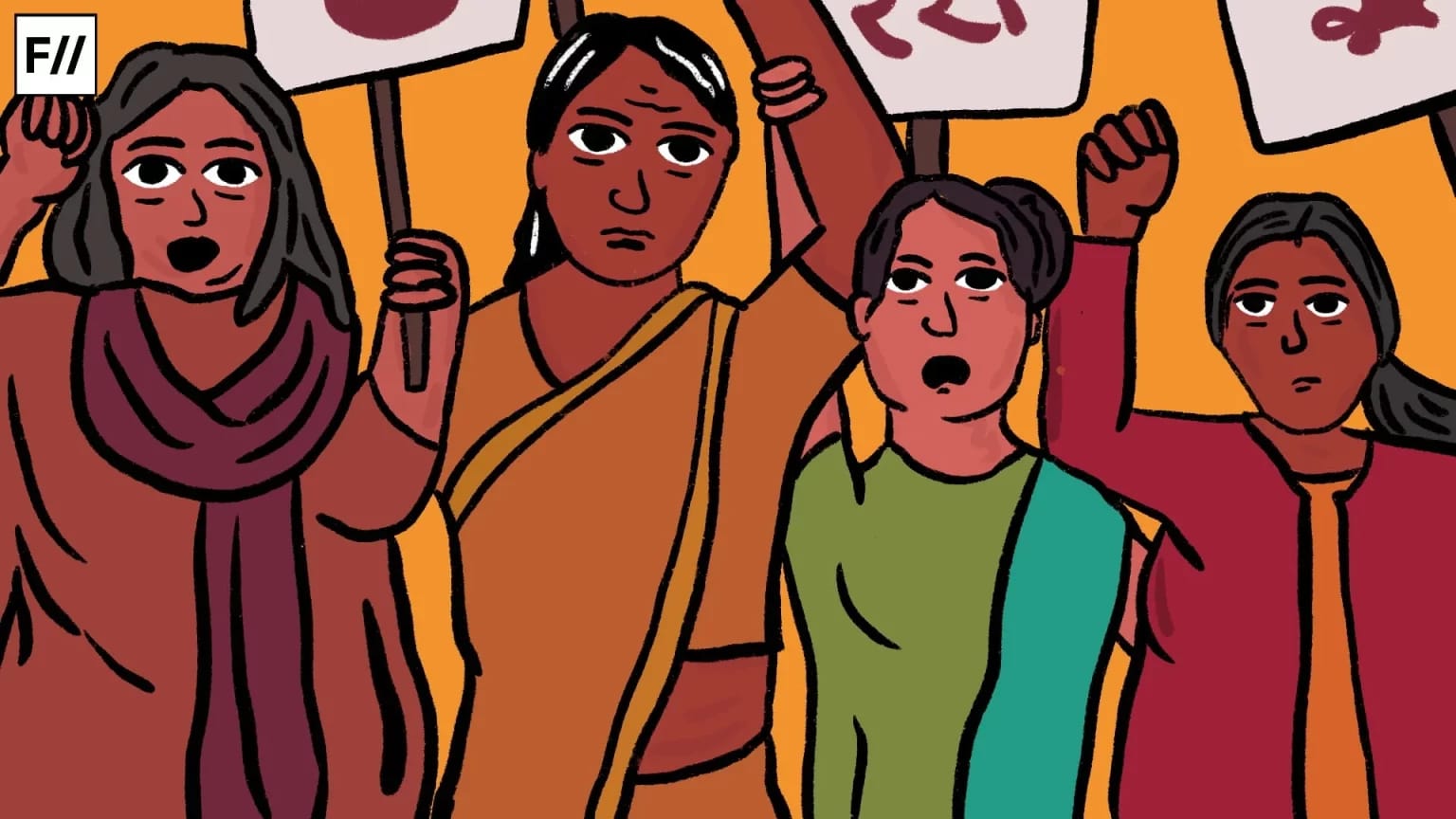Trigger Warning: Child Sexual Assault
In India, the majority of the workforce is employed in the unorganised sector. Yet, in these spaces, there is no guarantee of safety or security — both in terms of employment and also in general. This is especially worse for women, and they are more vulnerable to exploitation. In their case, the burden of caregiving also falls upon their shoulders along with earning money, which means it’s not just their personal safety at stake in their workplaces. This issue was once again brought to the forefront with the sexual assault of a five-year-old girl in Nagpur.
The Nagpur case: women workers save child from assault
On Friday, 3rd October, the security guard of a building under construction, who was identified as 31 year old Shubham Ikhar, lured a young girl onto the fifth-floor terrace. She was the five year old daughter of a woman employed at the construction site. A few women workers, who were working at the time, went looking for Ikhar and found him on the terrace. They were horrified to see him undressed and trying to force himself onto the child. They immediately caught him and called for help. Other workers who were in the building at the time and neighbours immediately came to the terrace and held Ikhar down. During this commotion, someone dialed 112 and the Beltarodi police arrived on scene.

Once the police arrived at the scene, they took Ikhar into their hands to prevent the mob from lynching him. As the police handled the culprit and the crowd, they also ensured that the child was safe and secure and pacified her mother. They also interviewed the witnesses to get a background of Ikhar. While some locals claimed that he was a paedophile, the police officers could not find any records to back this claim. His sister told the police that Ikhar is mentally unstable. The team to arrive first on scene was a team of beat marshals, later joined by police sub-inspector Sukanya Chaudhary, and assistant sub-inspector Snehalata Jaybhay, who were supported by a team of other women officers as well.
The senior inspector of the Beltarodi police station, Mukund Kawade, said that Ikhar was immediately taken into custody and a case was filed under Section 65(2) of Bharatiya Nyaya Sanhita and Sections 4, 5(m), and 6 of POCSO Act 2012. He is under interrogation. The child is receiving treatment and support from child development officers in the district.
From reaction to prevention
In this scenario, since the culprit was caught on scene, moreover during the act itself, it was possible to get justice. However, the safety of the children of these unorganised sector workers is called into question. Their workplaces aren’t safe, and they cannot afford to send their children to daycare. Besides the obvious financial burden, there is also the unpredictability of their working hours. As wage labourers, it is not easy for them to raise their children in a safe environment.
Due to the courage of the women in the Nagpur case, they were able to rescue the girl and ensure that the security guard was arrested. In fact, the police had to shield the suspect from the crowd, especially the women workers, who were irate. Senior inspector Mukund Kawade said to The Times of India, ‘Our team had to protect both the victim and the law.’ He also added, ‘We will ensure a conviction in the case.‘
Women working in the unorganised sector are in a precarious condition: while it is financially beneficial for the family, that very family cannot be looked after.
However, the more pressing question is that of preventing these incidents from taking place. Women working in the unorganised sector are in a precarious condition: while it is financially beneficial for the family, that very family cannot be looked after. The burden of caregiving falls solely on the women, which makes it even more difficult to juggle work and care. Moreover, being paid in wages also means that most of the time, the women are paid less than the men for the same amount of work and the same number of hours put in. They are already at a disadvantage on all fronts. Besides these double standards, in areas such as construction work they are in physical danger.

On top of that, as they are working in the unorganised sector, they do not have the guarantees, safety, and insurance policies that those working in the organised sector have the privilege of having access to. They cannot take paid leaves or maternity leaves, and have to bear any medical expenses on their own. They also do not have any protection from workplace harassment. The absence of robust safety protocols and the prevalence of gender-based violence make these spaces particularly unsafe for women.
The urgent need for structural change
Despite the existence of laws that ought to protect these women, there is little to nothing that actually happens on the ground. This makes the retaliation of the women workers in the Nagpur case all the more courageous and powerful. Sadly, however, most such incidents tend to go unnoticed. They may also be less likely to report cases of harassment and abuse due to various factors. Fear of retaliation, especially something like a job loss, and a lack of trust in authorities all contribute to a culture of silence in instances of violence in workplaces in the unorganised sector. A women’s network, even like the temporary one that formed in Nagpur, goes a long way in not just support, but also provides a feeling of empowerment. This is especially the case in a highly male dominated space such as construction work.
Regardless, it is crucial that there is a significant upheaval of the structure of unorganised labour itself. Apart from the general lack of safety and job security, the gendered division of labour puts women at a constant disadvantage compared to the men. Additionally, with the responsibility of providing care to the children while simultaneously earning income, it stretches women to, and sometimes past, their breaking point. Fair wages and childcare support are not a privilege, they are basic rights and need to be enforced. The process to report and tackle abuse must be hassle-free, and more importantly, fear-free. Until then these women will continue to be on unstable and unequal ground.
About the author(s)
Samhita is a final year student of English Studies at IIT Madras. She enjoys reading, and especially loves engaging with women's fiction, as part of her academic research as well. She's a huge fan of sudokus, crosswords, and all sorts of puzzles.





